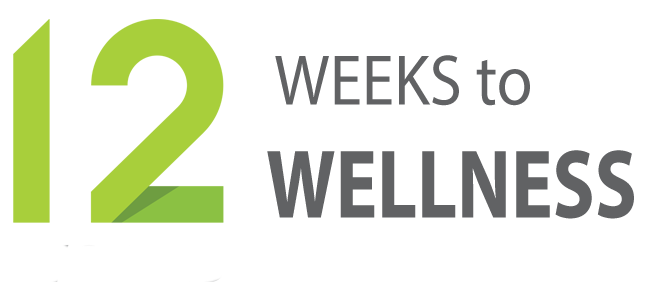
When organizations invest in well-being programs, they often start with initiatives like fitness challenges, nutrition workshops, or wellness stipends. These are valuable tools that raise awareness, build engagement, and spark important conversations about health.
But research shows that for real, lasting change, employees also need deeper, more personalized support—help with motivation, behavior change, and resilience. Self-Determination Theory (SDT) shows how wellness coaching helps employees turn short-term participation into long-term well-being success—making it a powerful complement to workshops, challenges, and other initiatives within a broader strategy.
What is Self-Determination Theory?
SDT explains that people thrive when three core psychological needs are met:
- Autonomy – feeling in control of one’s own choices
- Competence – building confidence through progress and mastery
- Relatedness – feeling supported and connected to others
Wellness coaching is uniquely designed to support all three. Rather than telling people what to do, coaches partner with employees to create realistic, meaningful, and sustainable changes.
Autonomy: Choice Fuels Motivation
Employees are more motivated when they feel ownership over their health goals. Coaches don’t prescribe a “one-size-fits-all” plan—they help people identify what matters most to them.
💬 One participant shared:
“I started tracking daily meals and riding my stationary bike for 20 minutes. I made these choices myself, and it feels sustainable.”
Competence: Building Confidence Step by Step
Behavior change sticks when people see themselves succeeding. Coaches break big goals into small steps, celebrating wins along the way.
💬 From another participant:
“Small meals during the day and incorporating protein powders helped me gain weight and energy. I now feel stronger and more in control of my health.”
That sense of progress builds the confidence to keep going.
Relatedness: The Power of Support
Health goals are easier to reach when you feel understood and supported. Coaches listen deeply, validate struggles, and provide encouragement that makes change possible.
💬 As one client put it:
“Bettina was great—she found a nice balance of encouragement and accountability. It helped me see where I needed the most work and actually start losing weight.”
The Results: Evidence Coaching Works
Wellness coaching isn’t just a theory—it’s backed by measurable outcomes. When a local health authority partnered with 12 Weeks to Wellness for a coaching pilot, the impact was clear:
- 38% average reduction in stress levels after just 6 hours of coaching
- 25% average increase in coping resources
- 70% of employees reached or made major progress toward their goals
- 77% reported increased job performance
- 96% experienced improved overall well-being
These results highlight what happens when employees are given autonomy, support, and the tools to succeed—exactly what SDT predicts.
Why This Matters for Organizations
Workplace well-being isn’t one-dimensional. Initiatives like workshops, nutrition sessions, and wellness challenges play an important role in raising awareness, educating employees, and building momentum. They create the spark that gets people engaged.
Wellness coaching adds the next layer—helping employees translate that spark into long-term, sustainable change. By supporting autonomy, building competence, and fostering connection, coaching ensures that the insights from challenges and workshops don’t fade away but instead become new habits, greater resilience, and measurable improvements in performance and health.
When organizations combine awareness-building initiatives with personalized coaching, the result is a stronger, more engaged, and more productive workforce.
Call to Action
Many organizations already have some form of “lifestyle coaching” tucked into their EAP coverage—but too often, employees don’t even know it exists, or the offering is too limited to address real health risks and drive sustainable change.
If you want your well-being investment to move beyond awareness and quick fixes, it’s time to rethink how coaching is delivered. By integrating structured, evidence-based wellness coaching into your workplace program, you give employees more than advice—you give them the autonomy, competence, and support they need to make meaningful changes that last.
Don’t let your coaching benefits go unnoticed or underutilized. Let’s talk about how you can bring wellness coaching to life in a way that truly supports your people—and maximizes your ROI.
*********************
About 12 Weeks to Wellness Inc.
For 20 years, we have assisted employee assistance providers in North America in optimizing employee well-being, engagement, and productivity through evidence-based wellness coaching methods.
Thousands of people have experienced real change by taking action for increased wellness, resilience, and optimal performance with the help of our wellness and nutrition coaching, related tools, assessments, resources, and technology.
We deliver proven, results-driven, online and telephonic nutrition, health, and wellness coaching that empowers employees to fulfill their personal and professional potential. Our services are effective, sustainable, and can be customized to match your organization’s mission, vision, and corporate culture for better engagement.
Author: Emma Carpenter
President and Workplace Wellness Strategist, BSC, Health Promotion
Emma has over 20 years of experience in the area of leadership and workplace health promotion and has worked with many private sector and public organizations in Canada and Europe helping them build a health promoting culture and design custom wellness solutions. Emma is passionate about designing workplace wellness solutions that help people reach their full potential by empowering them and giving them confidence and tools to make lasting lifestyle changes.
